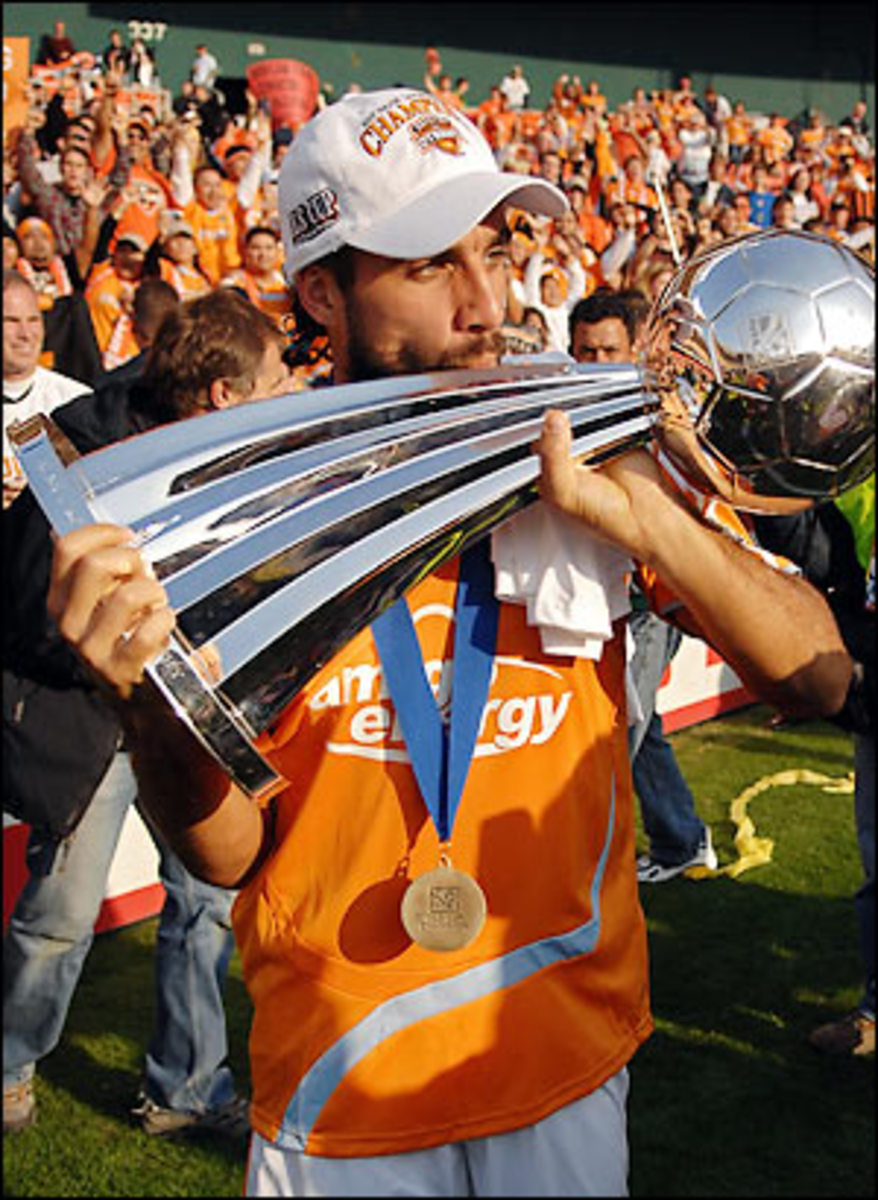A clockwork orange
Houston and New England are not, as the cliché goes, more than the sum of their parts. They are simply the sum of their parts. They are full teams, built from the core outward. Neither team has a "designated player" or a dream marketing signing who spikes attendance everywhere he goes.
Instead, they have solid players who play the game the right way -- with style, intensity, and skill -- and for the right reasons: to win. And so, they have built loyal followings that follow the players because they are on the team, as opposed to the bandwagoneers who follow teams because of the players who are on it.
But there was a difference on Sunday. A big difference that gave Houston its second consecutive MLS Cup trophy and condemned New England to its third straight loss in the MLS Cup final. The difference was that one player, that alchemist who can create something out of nothing. Houston had Dwayne De Rosario; New England did not.
The MLS Cup final was a game of two halves, to use another sports cliché. New England won the first half, Houston the second. But when New England won a half, it scored one goal to Houston's zero. When the Dynamo won the second half, they scored two goals to the Revolution's zero.
The previous two sentences seem like obvious factual statements. But they describe the consequential difference between having and not having an alchemist. When you don't have an alchemist, you can take a lead. When you do, you win.
De Rosario created magic for Houston all afternoon. He scored the second goal for Houston, a brilliant snap header that beat Revolution goalkeeper Matt Reis from about 12 yards. It was a difficult shot, one that very few people in the world could have completed. DeRo is not known for his heading ability (his own coach mocked him during the postgame press conference). But he rose up, got his head on the ball, and fired it home for the win.
The Revolution had no answer. Steve Ralston, who was the second-best player on the field for the 77 minutes he lasted until his 32-year-old calves gave out on him, did his best to pretend he was a magician. He appeared out of thin air in dangerous positions, carving out half chances for his teammates -- like PatNoonan's volley from 15 yards that sailed over the bar -- but in the end, he was never able to provide himself or anyone else that clear cut opportunity to put the game away.
The Revolution once had an alchemist. But they lost Clint Dempsey to Fulham in the English Premier League and did nothing to replace him. So when the game was tied 1-1 and Houston was relentlessly pursuing the winner, the Revs could do nothing. And unlike Houston, they couldn't create something tangible -- a goal -- from that nothing.
Does a fourth MLS Cup loss in six years mean the Revolution are the Buffalo Bills of soccer? No. Not if they return to the final next year. If they can't do that, then, yes, they are, because it would signal the end of a long, good run for the Revs, as the older guys like Ralston and Reis move out and the young guys like Michael Parkhurst move on.
On the other side, Houston -- by way of San Jose -- is a dynasty. No more doubts about that. The core group of players -- DeRo, Brian Ching, BrianMullan, Pat Onstad, et al -- have now won four MLS Cups since 2001. Why? Because they have played together for a long time. They like each other. They fight for each other. They win together, an attribute too rarely seen these days.
So, there was no Beckham, no Blanco. And there didn't need to be. Winning is not about the name on the back of one jersey. It's about the players in all the jerseys.





